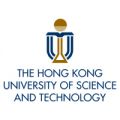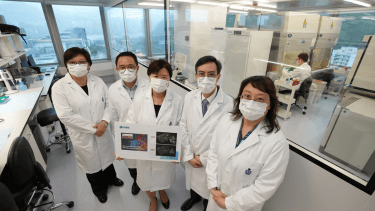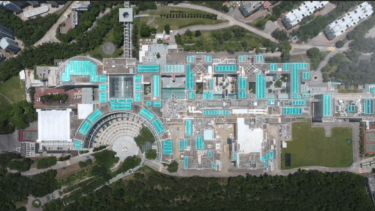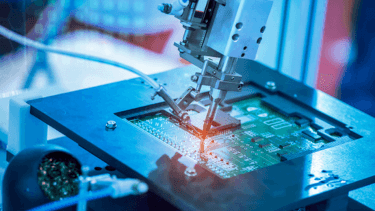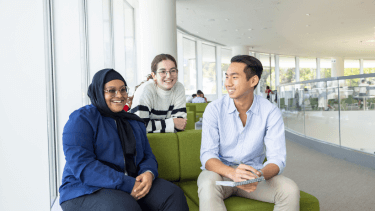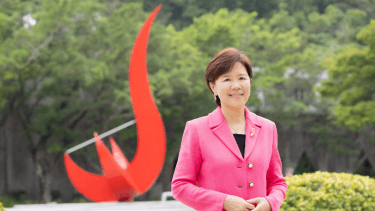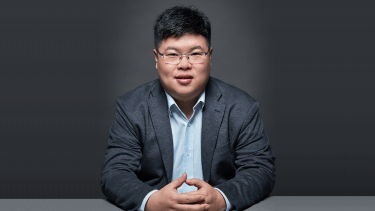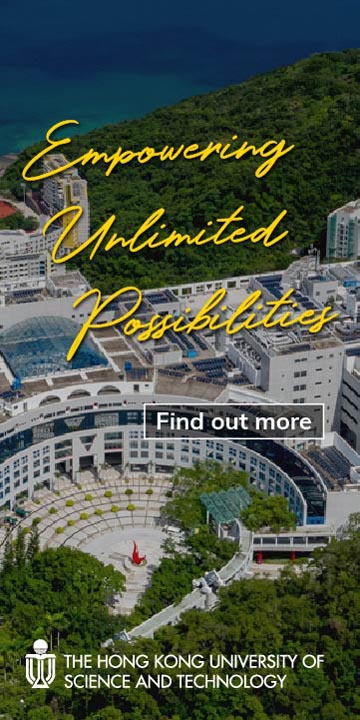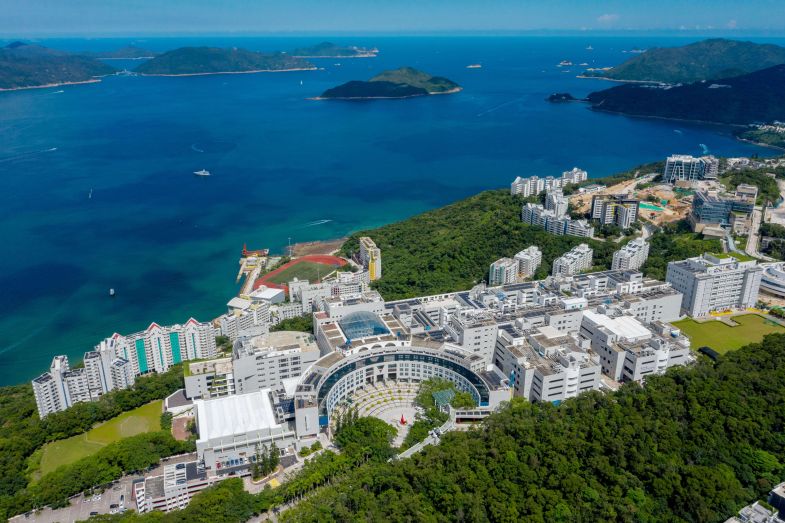
In the 1980s and early 90s, a daring group of visionaries – all doctorate holders from the world’s leading universities – left their prestigious jobs to join the Hong Kong University of Science and Technology (HKUST), a fledgling institution with no reputation to speak of. Their dream was to build the first research university in Hong Kong.
In just over 30 years since its establishment in 1991, HKUST has risen to become one of the most esteemed universities worldwide. As of 2023 it ranks 58th globally, according to Times Higher Education (THE), which also recognized HKUST as the third among the world’s young universities and the fifth most international university in 2022.
The intrepid researchers who built their teams and laboratories from scratch have since become world-class scientists, with around 30% of HKUST faculty members ranked by Stanford University as the world’s top 2% scientists as of 2022.
Our firsts in research
Our scholars share a common goal - to improve people’s lives. We have developed a simple but robust blood test from Chinese patient data for the early detection and screening of Alzheimer’s Disease for the first time. We have also made the world’s first spherical artificial eye with a 3D retina, bringing new hope to the visually impaired. When a major pandemic threatened lives and livelihoods, our scientists created a suite of highly effective anti-microbial coating products that became widely used in Asia to disinfect surfaces, among the many timely solutions from prevention to treatment of COVID-19 we offered.
Health science is just one domain in which we are making global impacts. As part of the Hong Kong government’s InnoHK initiative, HKUST is leading the AI Chip Center for Emerging Smart Systems (ACCESS) in collaboration with partners including Stanford University to develop AI chips that can improve performance and power efficiency by up to 1,000 times. Meanwhile, our Institute for the Environment (HKUST-IENV) is conducting the most comprehensive regional ozone study in the Guangdong-Hong Kong-Macao Greater Bay Area to date, pooling interdisciplinary experts to help formulate air quality strategies with the collection and analyses of air-borne, sea-borne and land-based samples using state-of-the-art technologies.
From lab to market
While academic excellence is the bedrock of a university’s success, we support our faculty, students, and graduates to go beyond the lab and make their innovations accessible. Many of them have become trailblazing entrepreneurs, transforming various sectors of society.
Among their start-ups with prominent global impacts is DJI, the civilian drone manufacturer with more than 70% market share worldwide, founded by an engineering graduate out of his dorm room in 2006. Today, the company is among the nine unicorns founded by HKUST members, along with Pudu Robotics, a global pioneer in commercial service robots, and Shanghai-listed Smartsens, a leading manufacturer of high-performance CMOS image sensors. Together with the 11 exits (IPO or M&A) and 1645 active startups nurtured by HKUST, they have generated a total economic impact of over US$51 billion to date, not to mention the unquantifiable benefits their products make on people’s lives, businesses, and the environment.
An early innovator
HKUST has all along been a champion in innovation. Back in the early 90s when the city was shifting from an industrial to a knowledge-based economy, the University envisioned the potential of innovation and technology to drive its transformation. In 1991, we set up the Pearl River Delta’s first nanofabrication facility with open access. The most comprehensive facility of its kind, it provides fabrication facilities in support of research and teaching in micro/nano devices and systems. From there, our scientists have fabricated the smallest single-walled carbon nanotubes, bringing revolutionary changes and paving the way for many new applications in hi-tech electronics, information technology, and biology.
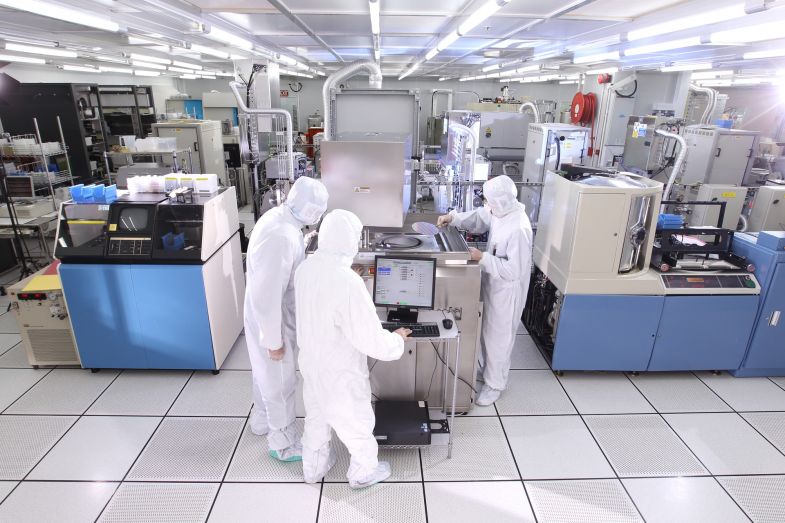
The Nanosystem Fabrication Facility at HKUST, established in 1991, is the first of its kind in the Pearl River Delta.
Nurturing next-generation innovators
HKUST was also the first to offer undergraduates an early taste of academic research through its Undergraduate Research Opportunities Program (UROP), launched in 2005. This program fosters creative thinking, intellectual curiosity, and problem-solving while facilitating collaboration between students and faculty. Thanks to this program, many undergraduates manage to publish journal papers and even speak at international conferences.
An early adopter of online learning, HKUST was among the first in Asia to offer massive open online courses (MOOC), allowing students to acquire new skills and strengthen existing ones. At the height of the Covid-19 pandemic, it decisively moved courses online to allow students to continue learning, a move followed by other top universities.
Expanding horizons in the Greater Bay Area
Living in a fast-changing world with challenges that require cross-disciplinary solutions, we keep thinking beyond conventional wisdom to address emerging global issues. To achieve this, we have launched an ambitious project - the establishment of a new campus in Nansha, Guangzhou that adopts a novel academic structure.
HKUST(GZ) was opened in September 2022 to complement the strong research capacities in established fields at HKUST and to expand the synergies in education, research, and knowledge transfer in the Greater Bay Area – China’s rising technology hub. It embraces a pioneering “hub” structure to facilitate cross-disciplinary work. Unlike traditional schools and departments in universities, HKUST(GZ) has four Academic Hubs (Function, Information, Systems, and Society) and 16 cutting-edge Research Thrust Areas that are responsive and adaptive to ever-changing worldwide trends. They include big data, design and thinking, sustainable environmental science, technology and policy, bioscience, intelligent transportation, and fintech - all melting knowledge from diverse fields of fundamental sciences and technologies to offer solutions that can handle complexities. The collaboration of the two campuses in this way is not only taking our University’s research and innovation to the next level, but also setting an example in pedagogy for the higher education sector at large.
Reaching greater heights
More recently, international borders have now fully re-opened following the subsiding of the COVID-19 pandemic. New opportunities have arisen for HKUST to scale its impact. To this end, we are working tirelessly to leverage the immense support from the Hong Kong and mainland governments to turn the city into an international innovation and technology hub.
To recruit high-caliber students and talent from around the world to join us on this exciting journey, we are introducing a variety of initiatives, including efforts to encourage our faculty to jointly develop cutting-edge technologies with industry partners through programs such as the “Frontier Technology Research for Joint Institutes with Industry Scheme” and the establishment of joint laboratories.
Attracting top talent is crucial to the success of our development, and our “30 for 30” Talent Acquisition Campaign aims to recruit 30 senior faculty members across six strategic research areas. We are also taking advantage of the growing number of academic partnerships and international conferences that have returned to Hong Kong. Located in an East-West melting pot, we are uniquely positioned to offer opportunities not only in our home city, but also in the Greater Bay Area and beyond.
With the number of admission applications from all over the world rebounding after the pandemic, HKUST is poised to reach new heights and expand its impact.
“With the right talent, structures and culture, we will be well positioned to spark innovation, effect change, and continue to elevate HKUST globally,” says the University’s President Prof. Nancy IP.
“In the fourth decade since its founding, HKUST is embarking on an exciting new phase of development. The University offers excellent opportunities to talented researchers to engage in innovative and impactful research as well as contribute to innovation and technology development in Hong Kong and across the GBA.”
